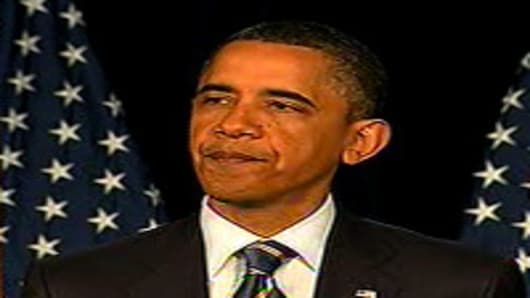Having just spent a week in the US I can confirm Americans and the British share an awful lot in common.
Putting aside the language issues which saw me struggling to understand what a number of Americans where actually talking about over the last week, the things we have in common are numerous.
Worrying about house and gas prices is a national pastime in both America and the UK.
Debating the need for austerity and cutting the national debt is also something both the people of the US and Britain feel very passionately about.
The issue of how to rein in spending inspires heated debate in both countries and the battle lines between left and right, higher taxes or lower spending, force people into the hands of the country's respective political parties in a way that is polarizing both nations.
The differences in importance and scale are of course huge, but the key difference for those debating the merits of fiscal austerity is timing.
In the UK Prime Minister David Cameron and his Chancellor decided that having won power last year they needed to act and convince the bond market that they where serious about cutting the budget deficit.
Having watched bond yields in Greece and other euro zone trouble-spots soar, Osborne got to work on a series of spending cuts that would get the UK’s house in order over the medium term.
Huge Backlash
As far as the international bond markets are concerned, Osborne and Cameron succeeded.
Yields, and therefore borrowing costs for Britain’s millions of home owners, have remained relatively low and warnings of downgrades from the major credit agencies over possible downgrades have receded.
At the same time the backlash against public sector cuts has been huge with the country increasingly divided between London - where public spending has the least impact - and the rest of the country, where public sector jobs have for a decade driven growth rates and an economic renaissance for many cities which lost old industries in the 1980s.
A summer of strikes and protests is expected as the market looks for clues on the impact of austerity measures on growth rates.
Unfortunately for the fiscal hawks, the early signs have not been good on growth.
In the forth quarter the economy contracted significantly as cold weather stopped people hitting the shops in the run-up to Christmas, while economists expect Wednesday’s first quarter GDP to confirm that the hoped-for rebound in growth has been weak at best.
Consumer confidence, spending and the housing market all remain weak and the Bank of England is questioning whether to hold back on tightening monetary policy despite inflation topping 4 percent.
“The majority of MPC members (voting members at the Bank of England) appears concerned that tightening policy now would risk prompting a sharp fall in household demand,” said Simon Hayes, the chief UK economist at Barclays Capital in London in a research note before the long Easter weekend.
“The precise degree to which households retrench in the face of the various pressures on their disposable incomes is hard to gauge and recent reports from retailers have been even more downbeat than we might have expected.
It is too early to say whether this apparent weakness simply reflects normal volatility, or is a sign of an even more depressed outlook,” Hayes added.
Royal Wedding a Risk?
The state of the UK economy is so uncertain that one economist is even warning that the Royal Wedding could skew the data over the coming months.
“At first glance, the marriage of Prince William to Miss Catherine Middleton on Friday 29th April hardly seems to be an important economic issue that merits close examination,” said Samuel Tombs, the UK economist at Capital Economics in a note to clients.
“Nonetheless, the Royal Wedding is likely to add to the volatility of the economic data over the next couple of months, making it even harder to judge the underlying strength of the recovery,” Tombs warned.
In other words conditions are so uncertain in the UK that a day off for British workers to watch a wedding could actually have an impact on economist’s ability to measure economic growth.
In America the debate over how to cut spending is raging following S&P’s decision to put US debt on negative outlook.
Tim Geithner, the US Treasury Secretary told CNBC last week that Congress will find a solution to balancing the budget although the battle over whether any shortfall is funded by tax rises or spending cuts is likely to dominate the political debate until the outcome of the 2012 presidential elections is known.
The real debate on American austerity will start once the voters have re-elected President Obama or elected a Republican rival.
Finding a credible medium-term spending plan, putting it into practice and then holding your nerve as the data leads the market to question the merits of said austerity measures will be as difficult for President Obama or the 45th President of the United States as it has been in recent months for David Cameron and George Osborne.



